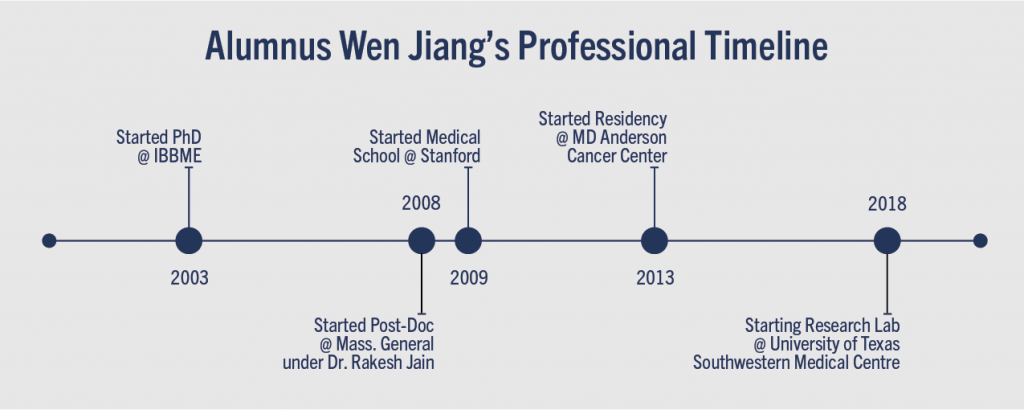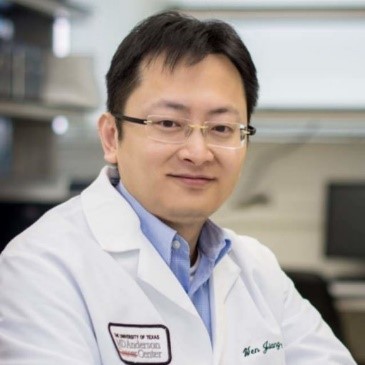When Wen Jiang started his electrical engineering degree at Carleton University in 1999, running a fully funded research laboratory was not on his mind. Dialing the clock forward 19 years later, Wen is starting his own research program at the University of Texas Southwestern Medical Centre (UTSW). As a research physician, Wen plans to establish a cutting-edge immunology-nanomedicine laboratory utilizing his past training in biomedical engineering and radiation oncology.
“I always wanted to do more research and bridge the translational gaps between knowledge gathering and clinical problems,” Wen says, “understanding both sides of the coin (research and clinical knowledge) means I can produce a problem-focused solution instead of trying to pigeonhole a technology to fit a clinical scenario.”
To fund his multidisciplinary initiative, Wen received $2,000,000 as part of his recruitment package as a Cancer Prevention Research Institute of Texas (CPRIT) Scholar. Recently, Wen was also awarded the University of Texas Rising STARS (Science and Technology Acquisition and Retention Program) valued at $250,000. This award is bestowed upon particularly outstanding faculty in academic institutions to aid laboratory setup costs.
At UTSW, Wen aims to develop nanometer-sized formulations (nanoparticles) that can engage the body’s immune system to fight cancer. While the human body is inherently programed to send out immune cells to tag and destroy harmful substances in the body, it is still inefficient at killing off invading cancer cells.
Wen’s strategy is to use nanoparticles as a bridging mechanism between the immune cells and cancer cell. “The nanoparticles are like a signal amplifier that alerts the immune system to attack the cancer cells”, thus making the body more efficient at halting tumour progression.

Wen completed his doctorate in Dr. Warren Chan’s laboratory at IBBME in 2008. He was one of the first 3 graduate students to start in Dr. Chan’s laboratory at the Donnelly Centre for Cellular and Biomolecular Research. At the time, he worked on designing nanoparticles to seek out and kill cancer cells in the body.
To fuel his curiosity and to learn more about human tumour biology, Wen pursued his post-doctoral study in Dr. Rakesh Jain’s laboratory in Massachusetts General Hospital. He completed his residency at MD Anderson Cancer Center, one of the top oncology training institutions in the world, following medical training at Stanford.Wen felt that his time spent at IBBME strongly directed his career trajectory in the past 10 years. “I still work on nano now, although how I envision its application and the problems that I seek to answer have evolved. Every part of my training offers additional layer of information, and gives me a distinctive view of the field of nanomedicine.”


